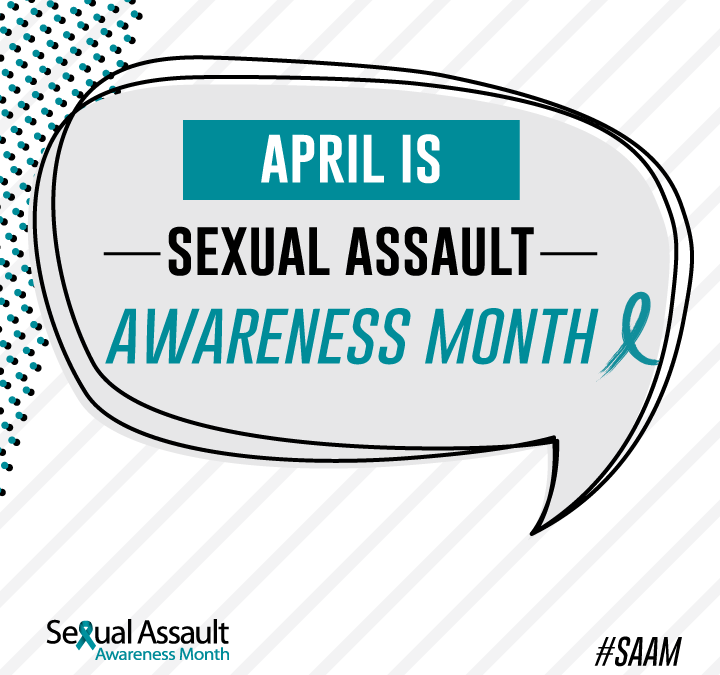
by Rev. Michael Heath | Sep 15, 2020
Journaling is very big. Everyone from therapists to staff sergeants are recommending it. Likewise there are all kinds of journals. There are food, dieting, workout , writing , prayer , dream , travel, reading, gratitude , pregnancy and creative writing journals, just to name a few.
Journaling is popular for a very good reason. It is a very helpful and effective way to clarify , organize and focus one’s thoughts as well as to ventilate and expel intense emotion which can cloud or distort thinking. Best of all , this age old practice can be done by anyone no matter your age , level of education or economic status.
In addition to individual journaling, there is another type of journaling which does not get as much attention as it deserves which can be a very important tool for couples who are having trouble with communicating with each other. It is called marital journaling (MJ). With MJ, partners share one journal and take turns messaging and responding to one another by writing in the diary-like volume that they share.
Writing messages is useful because, rather than speaking face-to-face, it has been found to be a less provocative way for highly reactive couples to “talk” constructively about issues which they disagree. MJ is an effective alternative to face- to-face talking for couples who frequently argue and are frustrated because areas of disagreement go unresolved . Indeed, for couples whose attempts to negotiate bog down into personal attacks, taking turns composing reasonably thought out messages in a journal can provide immediate relief which leads to greater communication and understanding between the partners . Here’s how it works:
Marital journaling works because there is a lag time between each volley of comments. This space has two benefits:

by Rev. Michael Heath | Aug 30, 2020
Certainly one of the most important qualities in a successful marriage is trust. However, when it is broken by dishonesty or betrayal, the emotional damage is so serious that the very survival of the union is uncertain. As a therapist, one of the most commonly asked questions by those seeking marriage or couples counseling is , “Can trust be regained ? “ and “ Can the injuries caused by the breach ever really heal ? “ Often, underlying these questions is a sense of hopelessness and the belief that a broken trust can never be repaired.
While the challenge of rebuilding trust is not easy or simple, forty years of experience in dealing with issues like infidelity has taught me that there is hope and that restoring a durable trust is possible if couples are able and willing to make the effort and to make some basic changes in their relationship.
Conceptually, what is needed for trust to be regained is emotional reassurance i.e. confidence and certainty that you can count on your partner when s/he is most needed. Betrayals like affairs or secretive financial activities are so devastating to trust because they draw into serious or complete doubt how well one knows or understands who one’s partner is. Doubt about one’s mate shatters the sense of emotional security on which trust is built.
While this sounds good in theory, what, specifically, can couples do to rebuild confidence in one another? Here some tips that can restore needed trust:

by Rev. Michael Heath | Aug 11, 2020
The full impact of the COVID-19 pandemic may not be known for years but, already, one of the unexpected effects that the virus has had on those who have been forced to shelter-in-place or to work from home has been to stir up anxiety about retirement.
Retirement ? Hang on. Let me explain. More than one client has expressed similar difficulties which initially involved work restrictions necessitated by coronavirus but ultimately were rooted in a deeper anxiety caused by an outdated notion of retirement.
Unfortunately, even though major progress has been made in terms of medical care and life-expectancy, our image of what modern retirement can be like lags seriously behind what it has become.
Having realistic expectations about retirement in the 21st century is crucial both to prevent dread and to make the transition successfully.
If you have been anxious thinking about retirement, here are some important facts to consider that may change your understanding of what retirement will involve. To help, here is a summary of a case which illustrates the problem.

by Rev. Michael Heath | Jul 26, 2020
Today I want to talk about a common problem which is, unfortunately, unnecessarily experienced by many folks: being “in love” with an abusive or unloving partner. A common misunderstanding present in these kind of destructive situations is a fundamental confusion about the meaning of love, i.e. where sexual thrills or emotional dependency is mistaken for a mature caring and devotion.
In working with individuals and couples for over 40 years, I have heard the word love used in many ways. Indeed, the Greeks had difference words to capture the many shades of meaning this English word can express.
When it comes to relationships, however, I have frequently observed a confusion between eros and agape or between mania and agape. You really can’t blame folks for being confused. To be honest, American notions of love and romance are a mess. They mush together a mixture of selfish and selfless personal experiences. For example, to be in love may mean feeling a powerfully exciting sexual sensation which is aroused by the person with whom one is in love or it may mean a deep and selfless concern for the wellbeing of the person that one loves. Confusing the two can be problematic. When a person thinks that s/he is in love in a mature way but in fact is primarily attracted to a thrilling sensation, or emotionally/literally is dependent on another person, good judgment is corrupted. Here is how to understand the differences.
Modern science has revealed the neurochemical components of Eros . Eros, which is sometimes falsely

by Rev. Michael Heath | Jul 12, 2020
One of the fundamental assumptions of psychotherapy is that, emotionally, we often confuse one thing for another. For example, a man has problems with his boss and then comes home and takes his anger out on his dog or his wife. That phenomenon is called displacement. Another example is when a person is feeling depressed and so they drink too much to numb the pain. That is called self-medicating the symptom. To effectively resolve hidden issues like anger or depression, the underlying problem must be identified and directly addressed. In these examples, the real issues, the conflict with one’s boss or the source of the person’s depression must be recognized and treated.
Sometimes behavioral problems are assumed to have psychological causes when, in fact, they may also stem from or at least involve medical ones. Overlooking physiological dimensions is sometimes the case with “stress” eating or having difficulties sticking to a diet to lose weight. Research has found that sometimes we confuse preliminary dehydration with feelings of hunger. Sometimes over-eating is associated with stress and anxiety when, in fact, it also is a sign that the body is saying that it needs more water. https://www.health.com/weight-loss/11-reasons-youre-always-hungry . If exclusively psychologically-focused efforts to help you stop over-eating or to lose weight have failed , you may want to consider dehydration as a complicating factor. Here is my personal story:
A while back I

by Rev. Michael Heath | Jun 28, 2020
Given the heightened level of tension and polarization present in today’s world, empathy is, ironically, the thing which is most needed and in the shortest supply.
Empathy is defined as the ability to understand and care about the feelings of another. It is feeling compassion for someone else. Although neuroscience estimates that 98% of people have the neural capacity for empathy , the current level of societal anger generated by both the hardships imposed by the coronavirus crisis and racial unrest toward police reveals that many folks are not feeling or expressing it. Instead of understanding and compassion, fear and mistrust are keeping us from uniting together against the common threats of Covid-19 and racism.
Apart from the larger cultural and political unrest, empathy is a key ingredient needed in everyday life to help partners , families, friends and colleagues, to get along better and reduce conflicts. The ability to put ourselves in another person’s shoes and experience and discover how another person has many of the same hopes and fears that we do goes a long way towards overcoming mistrust and hostility. Here are four simple steps to help you improve your understanding of and increase your caring about others:

by Rev. Michael Heath | Jun 13, 2020
As restrictions caused by the coronavirus continue and the frustration they have created mount, one of the common casualties reported by many folks is unwanted weight gain. This phenomenon is especially problematic for those who are sheltered-at-home. Changes and restriction in daily customs and work routines has created situations where folks don’t know what to do with large amounts of idle and unstructured time. This over-abundance of unstructured time has resulted in boredom which has in turn has driven many folks to distract and soothe themselves with comfort foods and by binge eating. Likewise, the food’s people are likely to choose for anxiety-based eating , things which are usually loaded with sugar , simple carbs and fats, are not helpful for maintaining a stable weight. Uncontrolled stress-eating combined with reduced activity levels spell trouble for anyone trying to avoid putting one a few pounds.
You get the point. Folks whose lives are normally filled with jobs and other vigorous activities have been caught off guard by the social side effects of COVID-19. The absence of a normal routine and a lack of meaningful stimulation has resulted in people feeling bored. Uncontrolled eating has been what many have relied upon to cope with this unresolved public health crisis.
Nevertheless, it is important to understand that unhealthy weight gain is not inevitable that but preventing it will take some increased awareness and intentional effort. If you are struggling with this issue, here are seven tips to help you resist the impulse to pig-out :

by Rev. Michael Heath | May 28, 2020
With more and more people working at home and sheltering, due to the Covid-19 pandemic, many couples are spending additional time in physical proximity to one another. This increased togetherness has resulted in many partners taking advantage of the increased opportunity and having more sex.
Unfortunately, for other couples, the forced togetherness has exposed previously avoided problems of intimacy and romance and created some uncomfortable awkwardness.
As a clinician who helps couples have better sex lives, I see the coronavirus crisis as an excellent opportunity to address and fix an embarrassing and discouraging problem.
The good news is that the solution is really fun but doesn’t involve sex at all. The key for many couples to re-ignite the flames of passion is unlocking pent up inhibitions and learning how to get silly . Yes, that is not a typographical error. Increasing silliness in couple is good and allows passion to follow. Let me explain:

by Rev. Michael Heath | May 13, 2020
It’s been almost two months since all counseling here in New York State has been conducted via tele-therapy , i.e. over either a telephone or a video platform.
At first, speaking with your counselor in this way may seem artificial or odd, but my experience and the experience of many others has been that, with a little practice, it becomes quite natural and normal.
While remote counseling is not new,, ( I first provided Skype style sessions for military families with deployed members almost twenty years ago), many folks don’t know much about it.
So , if you have been considering getting some counseling but have been reluctant due to this different format, here are some frequently asked questions and answers about tele-therapy to help you understand it and feel more comfortable with it.

by Rev. Michael Heath | Apr 30, 2020
Okay , my apologies for not posting earlier about this. With all the attention given to and disruptions caused by COVID-19, I almost neglected to acknowledge that April is Sexual Assault Awareness Month.
That said , I want to address a serious two headed problem faced by many who have been sexually assaulted: Shame and Self-Blame. Too often, even after many years have passed, many folks who have experienced sexual assault as children say that, even though they “know better”, they still can’t shake the feeling deep down inside that what happened was their fault.
It is important to understand that self-recrimination is a common psychological phenomenon experienced by many who have been abused. The good news is that, once understood, individuals can break its depressing hold and free themselves from this false sense of guilt and responsibility . Let me show you how.










